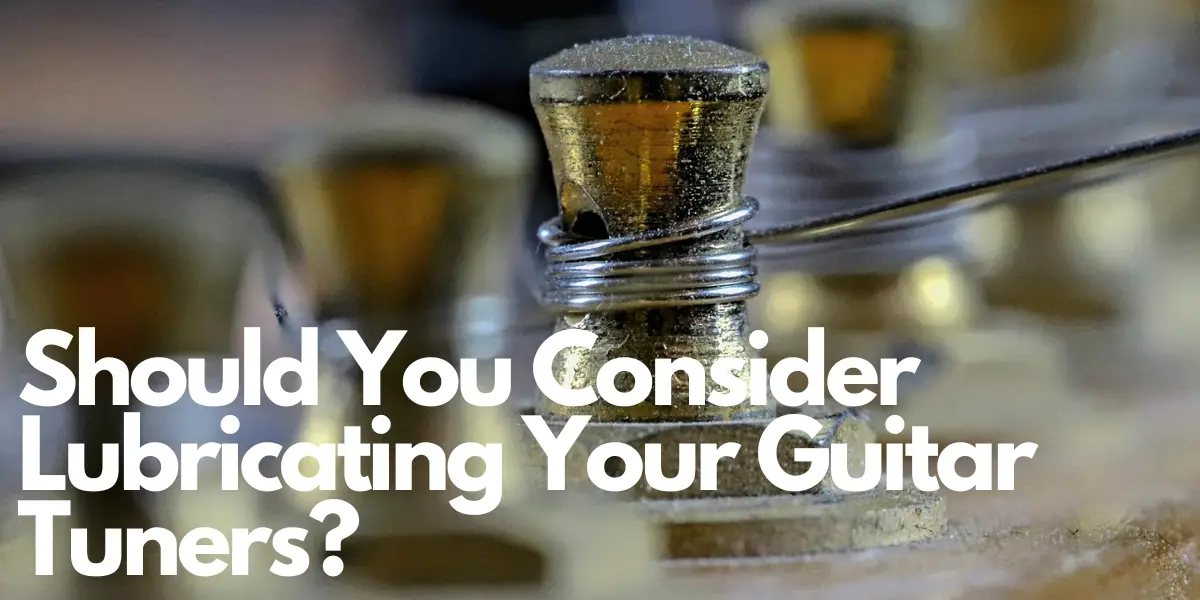Guitar tuners are the unsung heroes of your musical journey, silently working behind the scenes to keep your instrument sounding pitch-perfect. If you’re wondering whether you should lubricate your guitar tuners, you’ve come to the right place. In this article, we’ll explore the world of tuner lubrication, examining when it’s necessary, its potential benefits, and the steps to follow if you decide to give it a try.
Understanding Guitar Tuners
Before we delve into the intricacies of lubrication, let’s take a moment to understand the different types of guitar tuners commonly found:
Machine Head Tuners: These are the traditional tuners you’ll find on most guitars, featuring a knob that you turn to adjust the string’s tension and pitch.
Locking Tuners: More prevalent in modern electric guitars, locking tuners have a nifty mechanism that clamps down on the string, eliminating the need for multiple wraps around the tuning post.
Vintage-Style Tuners: You’ll often spot these on acoustic guitars and some electric models. They’re characterized by their open-back design and exposed gears, giving your guitar a classic look.
Should You Lubricate Your Guitar Tuners?
The big question – should you lubricate your guitar tuners? Well, it depends on several factors:
Type of Tuners: Machine head tuners, particularly vintage-style ones, might benefit from the occasional lubrication. However, locking tuners typically operate smoothly without the need for lubrication due to their different design.
Frequency of Use: If you’re an avid guitarist and frequently play your instrument, your tuners are more likely to experience wear and tear. In such cases, lubrication can help maintain their smooth operation.
Climate and Environment: Guitars exposed to extreme humidity or dry conditions can have tuners that are more susceptible to stiffness or corrosion. Lubrication becomes more useful in such scenarios.
Symptoms of Stiffness: If you notice that your tuners are becoming stiff or difficult to turn, it’s a clear sign that lubrication may be the solution.
Benefits of Tuner Lubrication
Lubricating your guitar tuners can offer a range of benefits that can enhance your playing experience:
1. Smoother Tuning: Applying lubricant can make tuning smoother and more precise, reducing the effort required to adjust string tension.
2. Reduced Wear: Proper lubrication helps reduce friction and wear on the tuner’s internal components, potentially extending their lifespan.
3. Improved Stability: Lubrication enhances the stability of your guitar’s tuning, preventing string slippage and those dreaded out-of-tune notes during your jam sessions.
How to Lubricate Your Guitar Tuners
So, if you’ve decided to give your guitar tuners a little TLC, here’s a step-by-step guide to help you along:
1. Gather Your Materials: You’ll need a suitable lubricant specifically designed for guitar tuners, a small screwdriver, and a clean cloth.
2. Remove Tuning Pegs: Carefully take out the tuning pegs from the headstock using the screwdriver. Be gentle to avoid any damage to the tuners or your guitar’s finish.
3. Apply Lubricant: Apply a small amount of the tuner lubricant to the gear mechanism inside the tuner housing. Remember, a little goes a long way; you don’t want excess lubricant dripping onto your guitar.
4. Rotate the Tuning Peg: After applying the lubricant, rotate the tuning peg several times to ensure even distribution of the lubricant throughout the mechanism.
5. Reassemble: Once the lubricant is evenly distributed, reattach the tuning pegs to the headstock.
6. Wipe Excess Lubricant: Finally, use a clean cloth to wipe off any excess lubricant that may have oozed out during reassembly.
Lubricating your guitar tuners can be a valuable maintenance step, especially if you’ve been experiencing stiffness or difficulty while tuning. However, always remember to use a suitable lubricant and apply it sparingly. Keep in mind that not all tuners require lubrication, and overdoing it can lead to other issues. If you’re unsure about your tuners’ needs or how to do it correctly, it’s wise to consult a professional guitar technician who can provide expert guidance tailored to your instrument.
Author: Mike P
Hi! My name is Mike! I’ve been an apartment producer/musician for 10+ years. I’ve played in punk bands, released EDM tunes on Beatport and iTunes, and have a semi-successful stock music portfolio. Read more…



